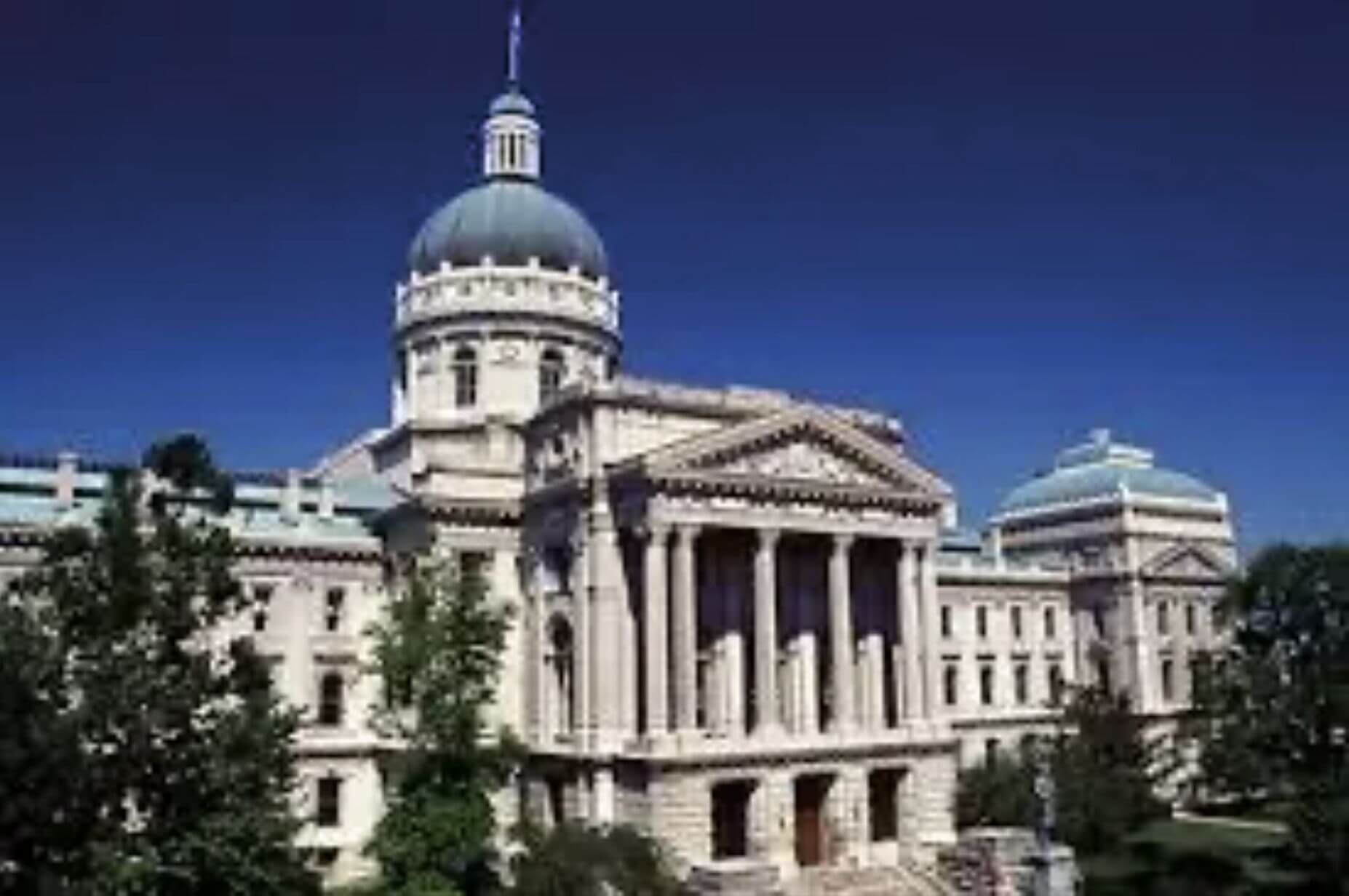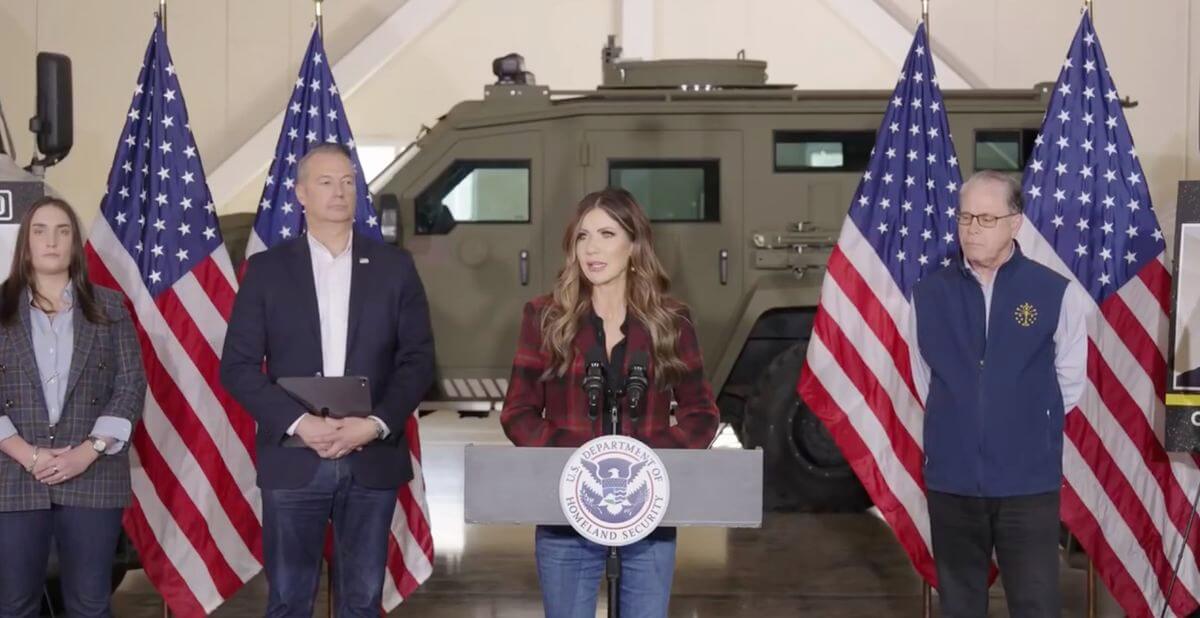11/4 Torchbearer Weekly Policy Update
Thank you for letting us be your trusted source for local, state, and federal policy updates.
Let’s dig in…
- Indiana Set to Convene Special Redistricting Session
- Beyond Redistricting: Indiana’s Special Session to Tackle Tax Update, Too
- Braun Taps DWD Commissioner to Lead IEDC
- Food Aid for Hoosiers Impacted by SNAP Disruption Squashed
- No New Indiana Child Care Vouchers to be Issued Until 2027
- Indiana Governor Mike Braun Signs Executive Order on Drones
- Noem Announces 223 Immigration Arrests in Roadway Blitz with Indiana State Police
- Nuclear Energy Startup to Establish HQ, Manufacturing Operations in Indiana
- Share the Torchbearer Newsletter with Your Network!
- Important Dates
Indiana Set to Convene Special Redistricting Session

The clock started yesterday on Indiana's special legislative session to draw a new congressional map with all nine seats in favor of the GOP ahead of next year's midterm elections.
- Why it matters: State law says that lawmakers have 40 calendar days — or 30 session days, whichever comes first — to conduct a special session once it's been called for by the governor.
The big picture: Gov. Mike Braun called the session to begin Nov. 3, which means lawmakers have until Dec. 13 to fulfill President Trump's request to redraw Indiana's congressional map in a way that flips northwest Indiana's 1st District and Indianapolis' 7th District from blue to red.
- Braun has also tasked lawmakers with passing a separate bill concerning taxes, aligning state code with federal changes in the One Big Beautiful Bill Act.
- Flashback: Indiana's last special session was in July 2022, to write and enact Indiana's near-total abortion ban.
- While Gov. Eric Holcomb called the General Assembly into special session July 6, lawmakers didn't convene until July 25.
- That session lasted about two weeks and lawmakers passed two pieces of legislation — the abortion ban and a tax bill.
- How it works: The legislative process during a special session is essentially the same as a regular session — bills still go through the committee process before heading to the chamber floor for amendments and a final vote by each chamber.
- Each of those steps will take at least one day, according to the General Assembly's rules.
- Lawmakers could suspend the rules to move legislation through the process more quickly, but they aren't expected to do that. The session will likely last around 7-10 session days to vote on the redistricting bill and tax changes.
- Reality check: Lawmakers are not obligated to take any action once in session, and they are allowed to consider legislation outside the scope of what Braun requested.
What's next: Legislative leaders say they're talking to members — part-time legislators, many who have other jobs — about their calendars and working on a schedule.
- "As always, our goal is to accomplish our work in a way that is most efficient and cost-effective for Hoosier taxpayers," House Speaker Todd Huston, R-Fishers, said in a statement released last week.
- The 2022 session cost about $240,000.
- Between the lines: Lawmakers are already due back at the Statehouse Nov. 18 for Organization Day, a one-day meeting that marks the ceremonial start of the next regular legislative session.
- The delay also gives Braun and redistricting supporters more time to pick up votes in the Senate, where leadership says they still don't have enough support to pass a redistricting bill.
- Huston's office says his caucus has the votes.
- What they're saying: Braun, who called the session after months of discussion, speculation, and pressure from the White House, seems confident they'll have the votes when the bill hits the Senate floor.
- "The momentum and support across the General Assembly have become clear, and I'm confident their thoughtful and responsible approach will lead to a successful outcome," Braun said on X. (Axios)
Beyond Redistricting: Indiana’s Special Session to Tackle Tax Update, Too

Indiana lawmakers could use the upcoming special session to address impending tax “chaos” by aligning state tax laws with federal changes.
Why it matters: Without action, discrepancies between Indiana’s static tax code and recent federal updates could complicate 2025 tax filings, affecting taxpayers and businesses.
- The Indiana Department of Revenue identified 42 provisions in the One Big Beautiful Bill Act (OBBBA) impacting state tax filings, including changes to adoption tax credits and health plan coverage.
The big picture: Indiana must update its tax conformity to avoid confusion and potential legal challenges for businesses and taxpayers.
- Matthew Will, a finance professor, emphasizes that legislative action is necessary to reflect federal updates, ensuring clarity for software providers and businesses.
What’s next: The special session starting on Nov. 3 offers a window to address these issues, alongside legislative redistricting.
- The Indiana Chamber of Commerce supports a careful review of federal provisions to maintain a stable and predictable tax code.
The bottom line: Aligning state and federal tax laws is critical to maintaining Indiana’s commitment to a growth-oriented tax structure. (Indiana Capital Chronicle)
Braun Taps DWD Commissioner to Lead IEDC

Gov. Mike Braun has appointed Josh Richardson as president of the Indiana Economic Development Corp (IEDC).
Why it matters: Richardson’s leadership is expected to bolster workforce alignment and economic growth in Indiana.
- With his background, he brings both economic insight and workforce experience to the role.
- He will focus on attracting new businesses and supporting the growth of existing employers through regional planning.
The big picture: This appointment follows Senate Enrolled Act 516, which separates the CEO and president roles at IEDC.
- Richardson will report to Commerce Secretary David Adams and work closely with regional leaders.
What’s next: Mike Smith will serve as interim commissioner of the Department of Workforce Development until a successor is named. (IBJ)
Food Aid for Hoosiers Impacted by SNAP Disruption Squashed

Republicans on Indiana’s State Budget Committee recently rejected a proposal to allocate state surplus funds to low-income Hoosiers and food banks as federal SNAP benefits face expiration amid a government shutdown.
Why it matters: The federal shutdown threatens the food security of over 571,000 Hoosiers relying on SNAP benefits.
- With the state surplus running ahead of projections by $270 million, some legislators argue for immediate state intervention to bridge the gap.
What’s next: The Braun administration could independently redirect funds, but complexities arise as SNAP funds flow directly from the federal government to EBT cards.
- Lawmakers suggest directing aid to food banks as a more immediate solution.
The stakes: Indiana might face increased SNAP costs in future years due to policy changes from the Trump administration, potentially adding $264 million to state expenses annually starting in 2026. (Indiana Capital Chronicle)
No New Indiana Child Care Vouchers to be Issued Until 2027

Indiana will not issue new child care vouchers to impoverished families until at least 2027, according to the Family and Social Services Administration (FSSA). This decision aims to contain enrollment and cut expenses amidst budget constraints.
Why it matters: The freeze impacts thousands of low-income Hoosier families who rely on vouchers for child care support.
- Enrollment in child care programs has already decreased significantly, with nearly 31,000 children on the waitlist as of September.
- The freeze could exacerbate financial strains on child care providers, many of whom are already facing closures due to reduced reimbursement rates.
The big picture: The FSSA’s decision comes as a response to over-enrollment during the pandemic, which was supported by temporary federal aid.
- The agency’s efforts to balance the budget include cutting contracts, staffing, and provider reimbursement rates.
- The number of voucher holders has dropped significantly, affecting the availability of child care for new families.
What’s next: Without new funding or policy changes, the waitlist for vouchers will remain until at least 2026, with current enrollees maintaining their benefits.
- The FSSA has set aside $147 million in “hold harmless” funding for existing voucher recipients.
- Stakeholders are encouraged to advocate for sustainable funding solutions to address the child care crisis in Indiana. (IBJ)
Indiana Governor Mike Braun Signs Executive Order on Drones

Governor Mike Braun has signed an executive order to position Indiana at the forefront of the federal government’s mission for American drone dominance.
Why it matters: Indiana’s strategic assets and expertise make it uniquely positioned to lead in the drone technology sector, promising economic growth and national security advancements.
- The state’s advanced manufacturing, defense research capabilities, and restricted airspace offer a solid foundation for drone development.
Driving the news: The Indiana Initiative for Drone Dominance Task Force will develop a strategic plan leveraging resources like NSWC Crane and Muscatatuck Urban Training Center.
- Key priorities include creating an aerial test corridor and enhancing public safety applications.
What’s next: The task force will coordinate efforts across government, academia, and industry to support national drone objectives.
- Workforce training programs will prepare Hoosiers for high-tech drone careers, ensuring privacy and safety remain priorities. (WIBC)
Noem Announces 223 Immigration Arrests in Roadway Blitz with Indiana State Police

U.S. Department of Homeland Security Secretary Kristi Noem announced the arrest of 223 individuals in Indiana during the “Operation Midway Blitz.”
Why it matters: This operation highlights the collaboration between federal and state agencies to address illegal immigration and enhance road safety.
- Indiana State Police, under a 287(g) agreement, played a crucial role in the sweep.
The big picture: 146 drivers, including 46 semi-truck drivers, were arrested, with many holding commercial licenses from various states.
- The operation aligns with broader efforts to improve safety on highways heavily used by interstate traffic.
What’s next: Indiana State Police plan to increase cooperation with ICE to enhance commercial vehicle enforcement.
- The state will be reimbursed for its efforts under the One Big Beautiful Bill Act. (Indiana Capital Chronicle)
Nuclear Energy Startup to Establish HQ, Manufacturing Operations in Indiana

First American Nuclear plans to establish its headquarters and manufacturing facilities in Indianapolis.
Why it matters: The move will create 5,000 high-paying jobs and position Indiana as a leader in nuclear energy.
- The company will invest $4 billion in its Indiana operations, enhancing the state’s clean energy profile. (IBJ)
Share the Torchbearer Newsletter with Your Network!

Not signed up for our weekly newsletter? Sign up today!
Important Dates:

State Board of Education Meeting: Wednesday, November 5th at 9:00 am
Government Reform Task Force: Wednesday, November 5th at 1:30 pm
Strategic Energy Growth Task Force: Monday, November 17th
Organization Day: Tuesday, November 18th
Special Session Convenes: Monday, December 1st
